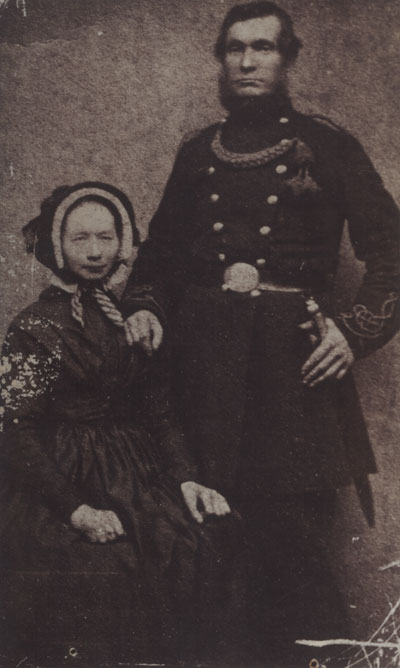A veldwachter was a police constable. In 1858, a national police force was established in addition to the municipal constabulary. From that period onwards, you will find a difference between a gemeenteveldwachter (municipal constable) and rijksveldwachter (national constable).
Appointments of national constables can be found in the Staatscourant, which is available online at Delpher, or in the Algemeen Politieblad, which is available at the website of the Centraal Bureau voor Genealogie (members-only). Appointments of municipal constable can be found in the records of the municipality or police.
Regional Archives often have police records, that can go back to the early 1800s. Browsing these records can give you a good impression of what was going on in a town. If your ancestor was a constable, these records can tell you about the cases he was involved in.

Constable Arend Kastein (1817-1903) and Dora Buitink (1824-1899). Author’s collection


And, veldwachters often show up as witnesses to birth and death registrations, presumably because they were on duty at the gemeentehuis and readily available.